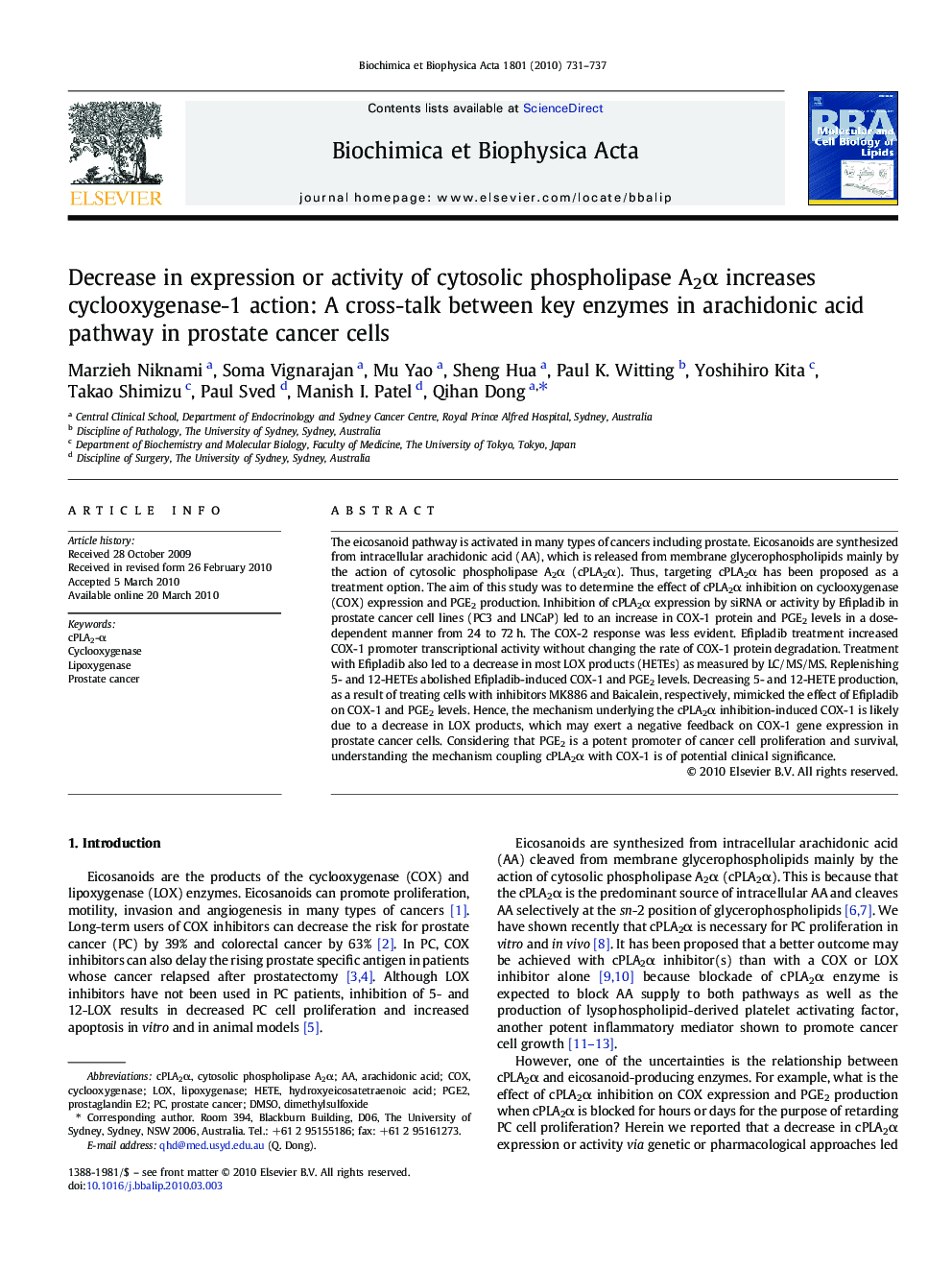| Article ID | Journal | Published Year | Pages | File Type |
|---|---|---|---|---|
| 1949737 | Biochimica et Biophysica Acta (BBA) - Molecular and Cell Biology of Lipids | 2010 | 7 Pages |
The eicosanoid pathway is activated in many types of cancers including prostate. Eicosanoids are synthesized from intracellular arachidonic acid (AA), which is released from membrane glycerophospholipids mainly by the action of cytosolic phospholipase A2α (cPLA2α). Thus, targeting cPLA2α has been proposed as a treatment option. The aim of this study was to determine the effect of cPLA2α inhibition on cyclooxygenase (COX) expression and PGE2 production. Inhibition of cPLA2α expression by siRNA or activity by Efipladib in prostate cancer cell lines (PC3 and LNCaP) led to an increase in COX-1 protein and PGE2 levels in a dose-dependent manner from 24 to 72 h. The COX-2 response was less evident. Efipladib treatment increased COX-1 promoter transcriptional activity without changing the rate of COX-1 protein degradation. Treatment with Efipladib also led to a decrease in most LOX products (HETEs) as measured by LC/MS/MS. Replenishing 5- and 12-HETEs abolished Efipladib-induced COX-1 and PGE2 levels. Decreasing 5- and 12-HETE production, as a result of treating cells with inhibitors MK886 and Baicalein, respectively, mimicked the effect of Efipladib on COX-1 and PGE2 levels. Hence, the mechanism underlying the cPLA2α inhibition-induced COX-1 is likely due to a decrease in LOX products, which may exert a negative feedback on COX-1 gene expression in prostate cancer cells. Considering that PGE2 is a potent promoter of cancer cell proliferation and survival, understanding the mechanism coupling cPLA2α with COX-1 is of potential clinical significance.
